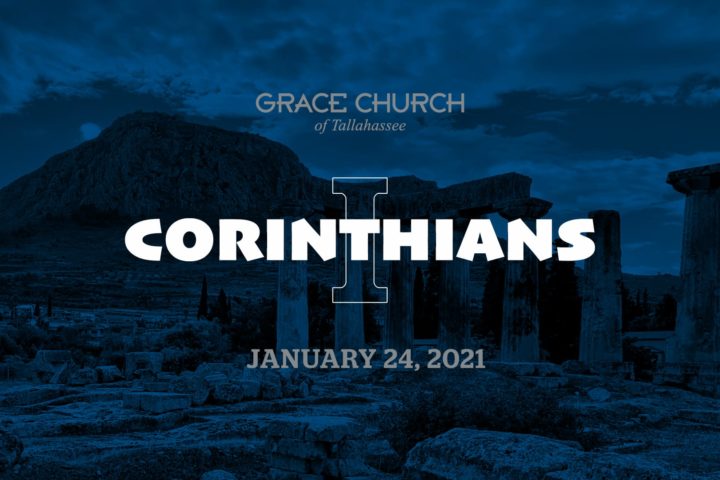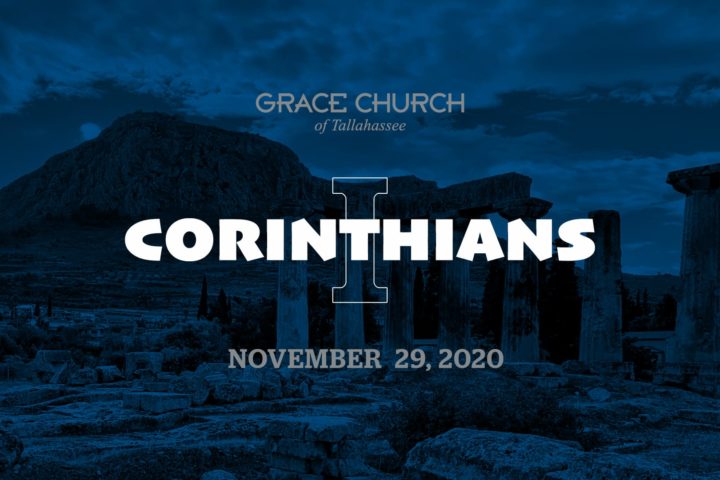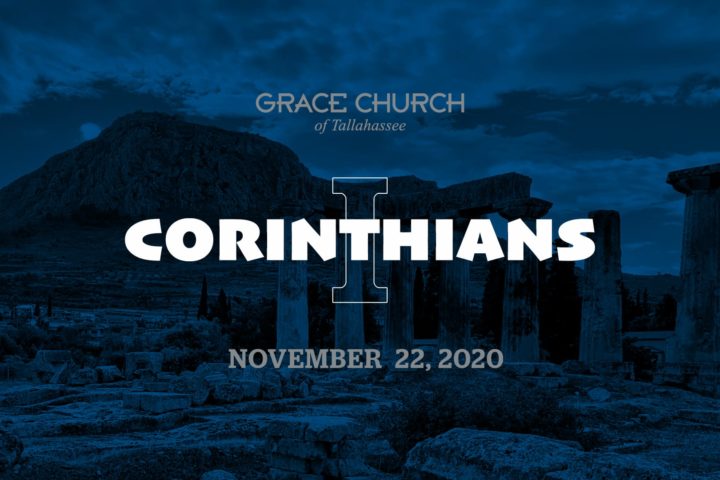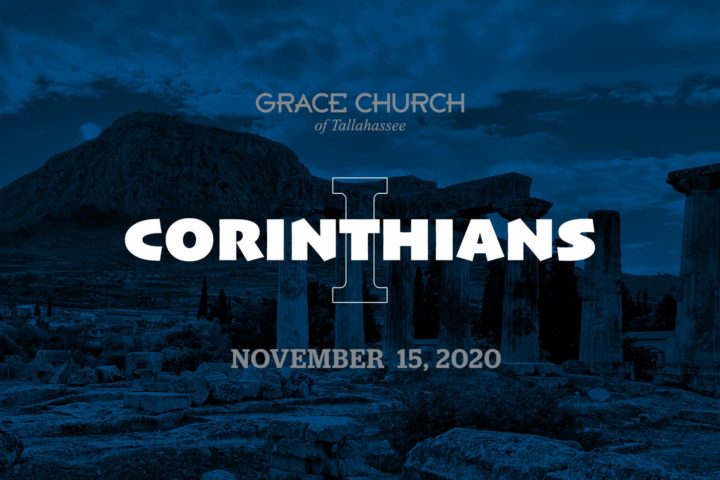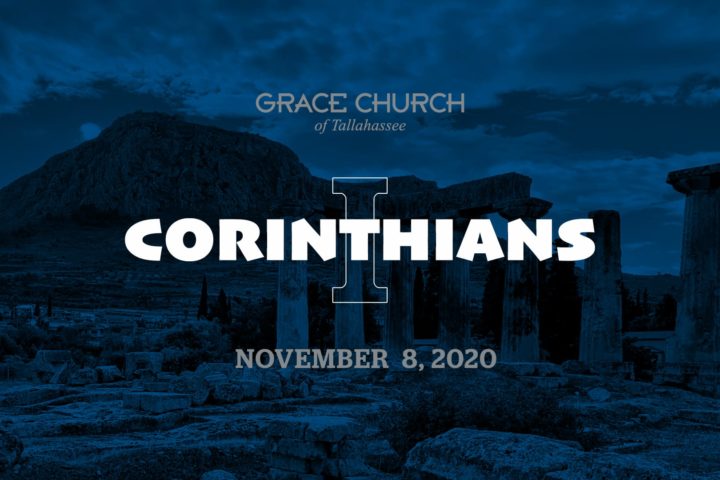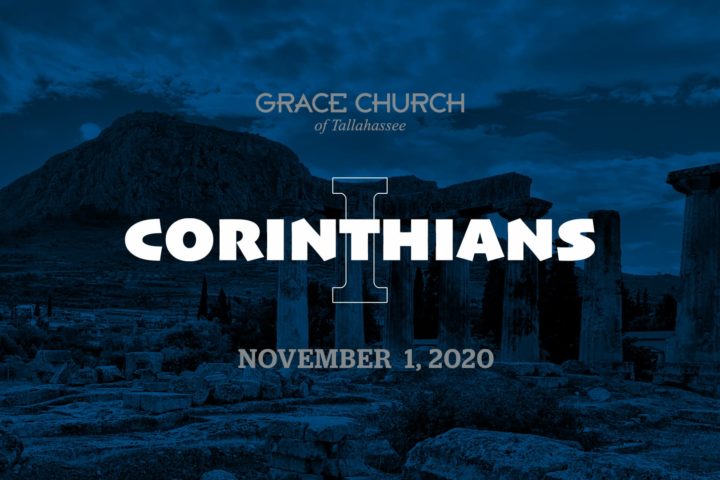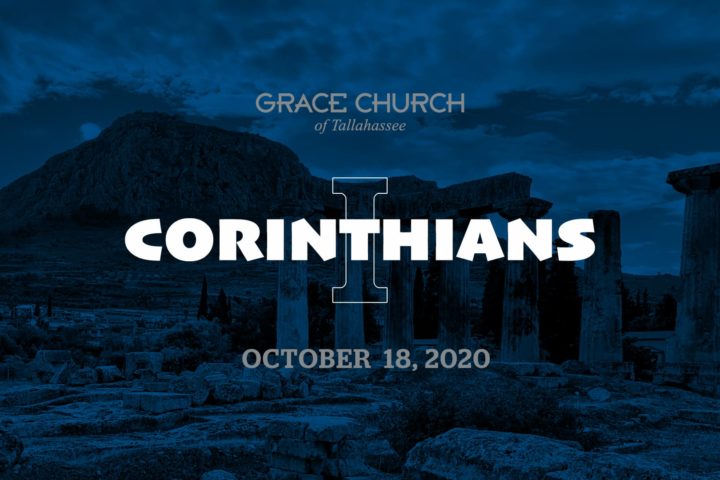1 Corinthians (Series) (Page 4)
Outside the Law of Moses
1 Corinthians 9:19-23 Paul discussed his choice to give up his freedoms in Christ that he could have enjoyed because he was no longer under the Law of Moses. Pastor Rod Bunton explains what it means to be outside the Law of Moses, but still bound by the Law of God.
Should Pastors Be Compensated?
1 Corinthians 9:1-18 In this section addressing the proper attitude about idols and the weaker brother, Paul provides an example regarding himself and his compensation. Pastor Rod Bunton illuminates this example and explains why Paul didn’t take payment from the Corinthian church.
Wrong Thinking about Food
1 Corinthians 8:4-18 Armed with the knowledge that Christians should flee idolatry, Corinthians were concerned about eating food that had been sacrificed to idols. Pastor Rod Bunton explains how Paul taught them about the powerlessness of food to affect our relationship with God, but there is still danger and an even bigger issue.
The Danger of Theological Knowledge
1 Corinthians 8:1-3 Starting in Chapter 8, Paul enters a new section, in his letter to the Corinthians, regarding idols. Pastor Rod Bunton starts with an introductory overview and discusses the three dangers of Christian theological knowledge.
Divorce and Remarriage, Part 2
1 Corinthians 7:25-40 Paul concludes Chapter 7 by addressing those who are single, either because they’ve never been married or because they are no longer married. Pastor Rod Bunton help us to understand the passage from two different translations that, ultimately, come to the same conclusion.
Live as You are Called
1 Corinthians 7:17-24 Having just explained that it isn’t necessary to divorce an unbelieving spouse, Paul takes the opportunity to explain that extra-biblical changes aren’t necessary before becoming a Christian or just being more spiritual. Pastor Rod Bunton expounds on the pressure to change our ethnic and social status instead of just glorifying God as we are.
Divorce and Remarriage, Part 1
1 Corinthians 7:8-16 Divorce has become increasingly commonplace in today’s secular and Christian cultures and Paul also needed to address it with the Corinthian church. Pastor Rod Bunton begins a short series on a difficult and often controversial topic.
The Protective Purpose of Sex
1 Corinthians 7:1-7 After discussing sexual immorality in Chapter 6, Paul moves on to the other side of the topic, God honoring sexual fulfillment. Pastor Rod Bunton takes on this sensitive subject and shows us that the gift of sexual relationships, within marriage, was given by God for specific purposes.
Flee Immorality, Part 2
1 Corinthians 6:12-20 Paul warned the church in Corinth about the danger of sexual immorality, urging them to flee it in order to glorify God. Pastor Rod Bunton concludes his teaching on this passage reminding us that sexual immorality not only affects the sinner, but the whole body of Christ.
Flee Immorality, Part 1
1 Corinthians 6:12-13 God’s grace sometimes leads Christians to believe that they are free to sin because they can be forgiven. Pastor Rod Bunton takes on this subject about which Paul also admonished the Corinthians — encouraging them to change their thinking lest they become slaves to sin instead of glorifying God.
And Such Were Some of You
1 Corinthians 6:9-11 Paul set out to clear up two questions that the Corinthian church was struggling with: “Who goes to Heaven?” and “Is the power of the Gospel enough to save everyone?” Pastor Rod Bunton helps us understand who “the unrighteous” are and shows us that no one is beyond God’s transforming power.
Lawsuits Against Believers
1 Corinthians 6:1-8 We live in a society that is increasingly litigious; some cases are serious but often they are trivial or petty. Paul addressed this issue within the Corinthian church pointing out that their conduct was affecting their character. Pastor Rod Bunton explores this topic, reminding us that conflict within the church becomes a public testimony of the entire church, hindering the primary mission.


